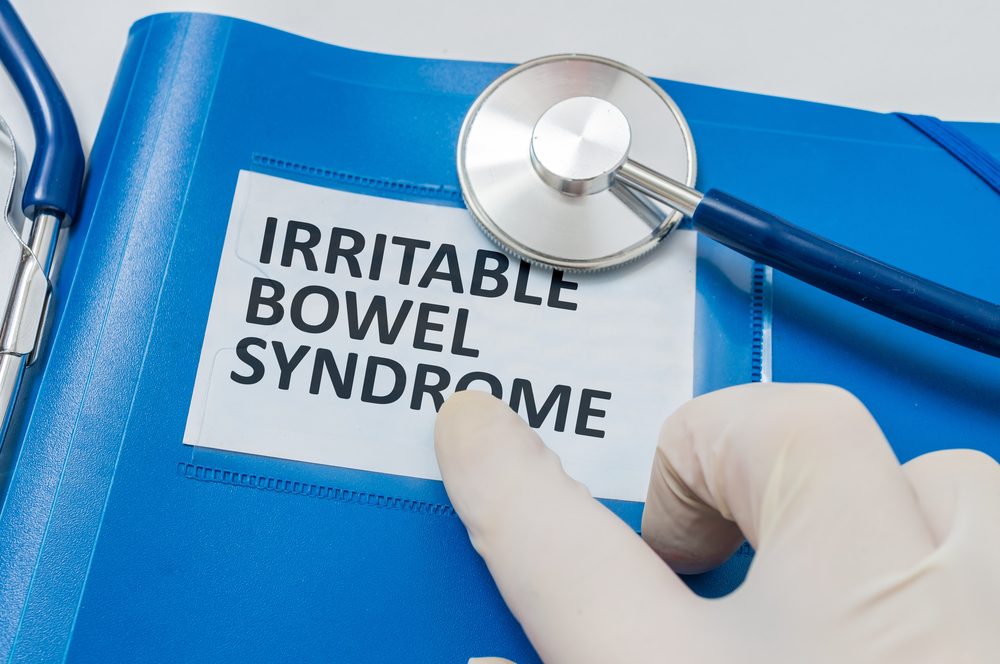Disclosure: In any review for a product or service, products or compensation may have been provided to me to help facilitate my review. All opinions are my own and honest. I am disclosing this in accordance with FTC Guidelines. Please see “Disclose” and "Terms of Use" tabs for more information.

If there’s one thing likely to make the upcoming season of goodwill less merry and result in a crummy Christmas, it’s being suddenly struck by digestive problems. Pretty much the last thing in the world any festive reveller wants is to be prevented from indulging in all that rich food we consume at the most wonderful time of the year, lest it helps bring on excessive bloating, bouts of constipation and irritable diarrhea.
And irritable’s very much the word, for if you find yourself suffering from such symptoms at Christmas – or, for that matter, at any time of year – then it could well be that you’re among the millions around the globe who have irritable bowel syndrome (IBS).
What is IBS?
IBS is a highly common gut disorder – frankly, it’s probably the most common in the world – being something of a broadly defined condition. Generally speaking, it’s estimated to affect around one in five people at any time1, but women sufferers outnumber men by two to one1 – the most afflicted are women aged between 25 and 45-years-old
There’s no question, IBS can be both disruptive and distressing and potentially lead to embarrassment in certain situations; however, one bonus (if you can call it that) is that it’s neither life-threatening nor can it fester and turn into bowel cancer.
The two most common symptoms IBS sufferers have to put up with are constipation and diarrhea, or often a mixture of both. Other symptoms that often come with the condition are intestinal pain and cramps, bloating, nausea and vomiting (in some cases) and an inability to fully empty your bowels. Unfortunately, owing to the fact it’s a chronic disorder and that its physical symptoms come and go, the likes of stress, anxiety and depression are also commonly associated with IBS.
Dietary tips
So, should you suspect you’re suffering from IBS, what can you do about it? Well, don’t suffer in silence. As with practically any ailment (unless it’s an ordinary cold), you’re advised to seek medical advice and probably an examination to have confirmed what it is that’s actually wrong with you, of course. But beyond that – and as pretty much any and every medical practitioner will advise – you can make lifestyle changes that will aid living and coping with IBS on an everyday basis.
Predominantly, these changes ought to concern diet. Foods and drinks to cut down on – or, at best, avoid – because they’re IBS irritants include the likes of coffee, cow’s milk, sugary drinks, sweet wine and wheat-based foods, such as bread and biscuits. As an alternative to the latter, you might try oat-based cereals, oatcakes, porridge and rye bread (made with water rather than milk).
Essentially you should try to steer clear as much as you can ingredients like:
- Artificial sweeteners (in particular, aspartame and sorbitol)
- Corn syrup
- Dextrose
- Fructose
- Glucose
- Maltose
- Modified starch
- Sucrose
- Wheat flour
- Yeast
And when you do eat, be mindful to chew thoroughly, allow your food to ‘go down’ for around 10 minutes after eating and try not to eat while walking somewhere. It’s a good idea too to take on lots of water, which means sipping a good deal of it between meals and having a full glass between getting up and breakfast.
Probiotic supplements
Another method for combating IBS is through BioCare probiotics – indeed, many sufferers are taking the supplement route to offset IBS symptoms and improve their general gut health. So why not try one of the following available via The Finchley Clinic?
- Bifidobacterium Bifidum (powder/ 60 g) – one of the predominant, friendly bacteria that occupy in the lower part of the small intestine, Bifidobacteria are excellent at exerting a controlling influence over the overall balance of gut flora
- MicroFloraGuard (30 capsules) – works by releasing friendly bacteria, garlic and botanical oils (which are both antiseptic and antifungal) at separate and highly effective intervals into the intestinal system.
















Speak Your Mind
You must be logged in to post a comment.